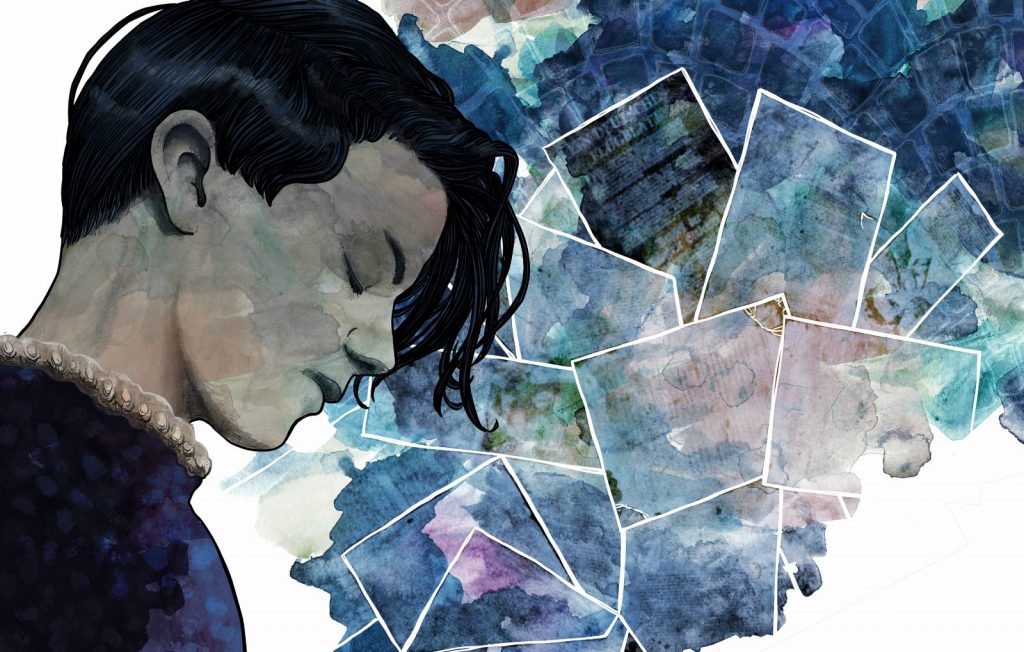Blog Post
The Christian resistance of Sophie Scholl
By Jonathon Van Maren
In February, in time for the centenary of Sophie Scholl’s birth, Plough Publishing released Freiheit! The White Rose Graphic Novel. It is a masterpiece of understated storytelling, with ominous gray, black, and white watercolors, minimal dialogue, and a narrative that lets the short, magnificent lives of the White Rose resistors speak for themselves. Their writings were more than true—they were often literary, indicating a wisdom far beyond their age. “I know that life is a doorway to eternity, and yet my heart so often gets lost in petty anxieties,” Sophie once wrote. “It forgets the great way home that lies before it.”
The story of the White Rose resistance is by now well-known. Sophie, her brother Hans, their friend Christoph Probst, and several others decided that it was their duty to resist Hitler, no matter what the cost. With strategically placed anti-Nazi graffiti and powerful, privately published pamphlets, they created the illusion of a mass movement that sent the authorities into a frenzy trying to track them down. Hans and Sophie were caught on February 18, 1943, when they emptied a suitcase of leaflets into the courtyard at the University of Munich. Probst was arrested shortly thereafter.
Over the past several weeks, many articles and essays have been published in mainstream publications for the centenary celebrating the lives of these young people, for whom “courage” seems too frail a word. In many of them, the Scholls and their friends have been recast as liberal heroes for a postmodern age: Defenders of democracy; champions of freedom. It is true—they were those things. But they were far more. Fundamentally, the members of the White Rose were acting on Christian conviction and defending Christian principles. Their writings, their lives, and ultimately, their deaths reveal this with stark clarity.
Only four days after their arrests, the Scholls and Christoph Probst were on trial. The Nazis were eager to extinguish these flickers of resistance; interest in the case ran all the way up to Joseph Goebbels. In the courtroom, the red-robed Roland Freisler ranted and raged like a demonic cardinal—and Sophie, only 21 years old, told him calmly: “Somebody, after all, had to make a start. What we wrote and said is also believed by many others. They just don’t dare to express themselves.” They were sentenced to death and consigned to Stadelheim Prison.
Faith tempered fear. “I shall cling to the rope God has thrown me in Jesus Christ, even if my numb hands can longer feel it,” Sophie wrote. The night before their execution, she slept calmly. The following day, they were given a few moments to say farewell to their parents. Grasping their hands through the prison bars, Hans sought to reassure them: “I have no hatred. I have put everything, everything behind me.” Magdalene Scholl sought to comfort her daughter: “Remember, Sophie: Jesus.” Sophie replied: “Yes, but you must remember Jesus, too.” Their father Robert told them he was proud of them.
As the friends prepared to die, the prison warden overheard Probst say to the Scholls: “I didn’t know that dying could be so easy. In a few minutes we meet again in eternity.” Their interrogators and guards were unnerved by the calm faith of the doomed. “They bore themselves with marvelous bravery,” one remembered later.
On February 22, 1943, Sophie Scholl crossed the prison courtyard to the guillotine. Her powerful, parting words revealed her peace. “Such a fine, sunny day, and I have to go. But how many must die on the battlefields, how many promising young men…What does my death matter, if through us, thousands of people are awakened and stirred to action?” One source says that her last words before she was beheaded were: “God, you are my refuge into eternity.” Her brother Hans followed, and bellowed his resistance with his final breath before the blade fell: “Long live freedom!”
To recast the White Rose as secular activists rather than Christian resistors is to cut the soul out of their movement. Sophie’s favorite Bible verse was the foundation of her convictions—James 1:22: “Be doers of the word and not hearers only.” Her writings are worth reading and rereading, and many of them are powerful reminders for today.
“Isn’t it a riddle…and awe-inspiring, that everything is so beautiful, despite the horror?” she once wrote. “Lately I’ve noticed something grand and mysterious peering through my sheer joy in all that is beautiful, a sense of the Creator…only man can be truly ugly, because he has the free will to estrange himself from this song of praise. It often seems that he’ll manage to drown out this hymn with his cannon thunder, curses, and blasphemy. But during this past spring it has dawned upon me that he won’t be able to do this. And so I want to try and throw myself on the side of the victor.”
She wasn’t talking about democracy.









Thank you for this reminder of the faith of the White Rose martyrs. They wouldn’t, of course, consider themselves martyrs. They were humble but courageous followers of Jesus Christ. Any recounting of their movement that leaves out their devotion to Christ is necessarily a stilted and dishonest one.